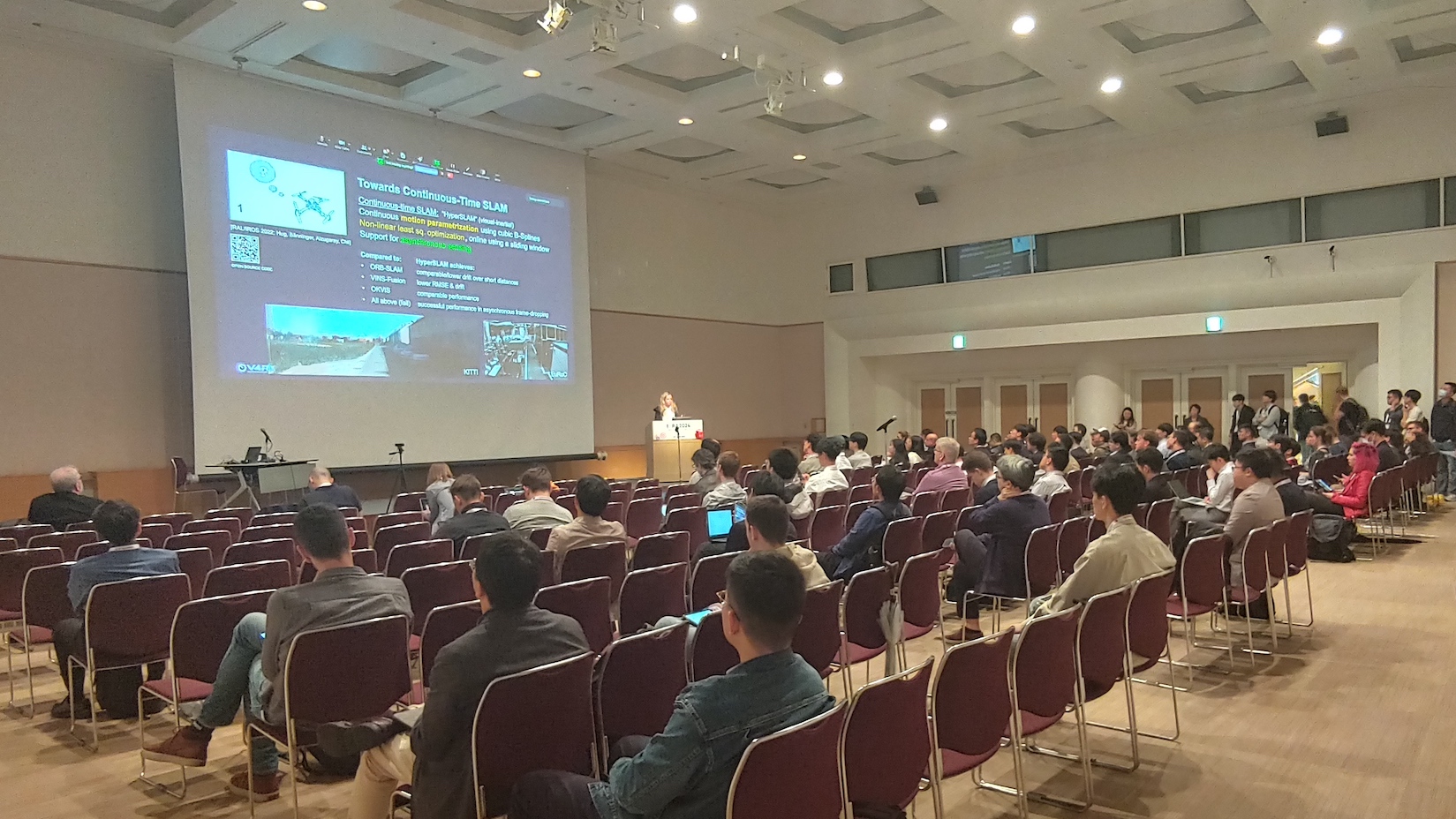
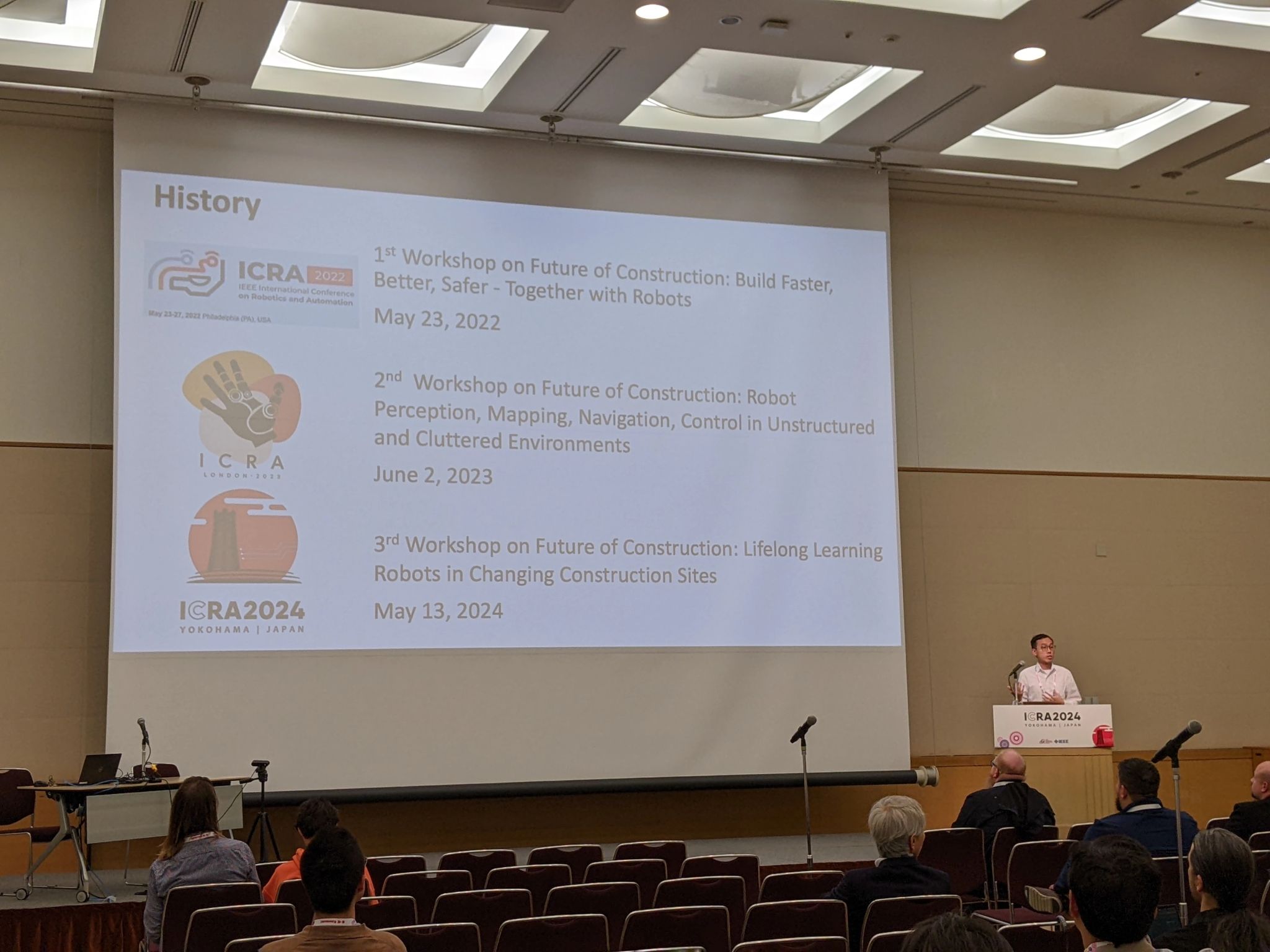
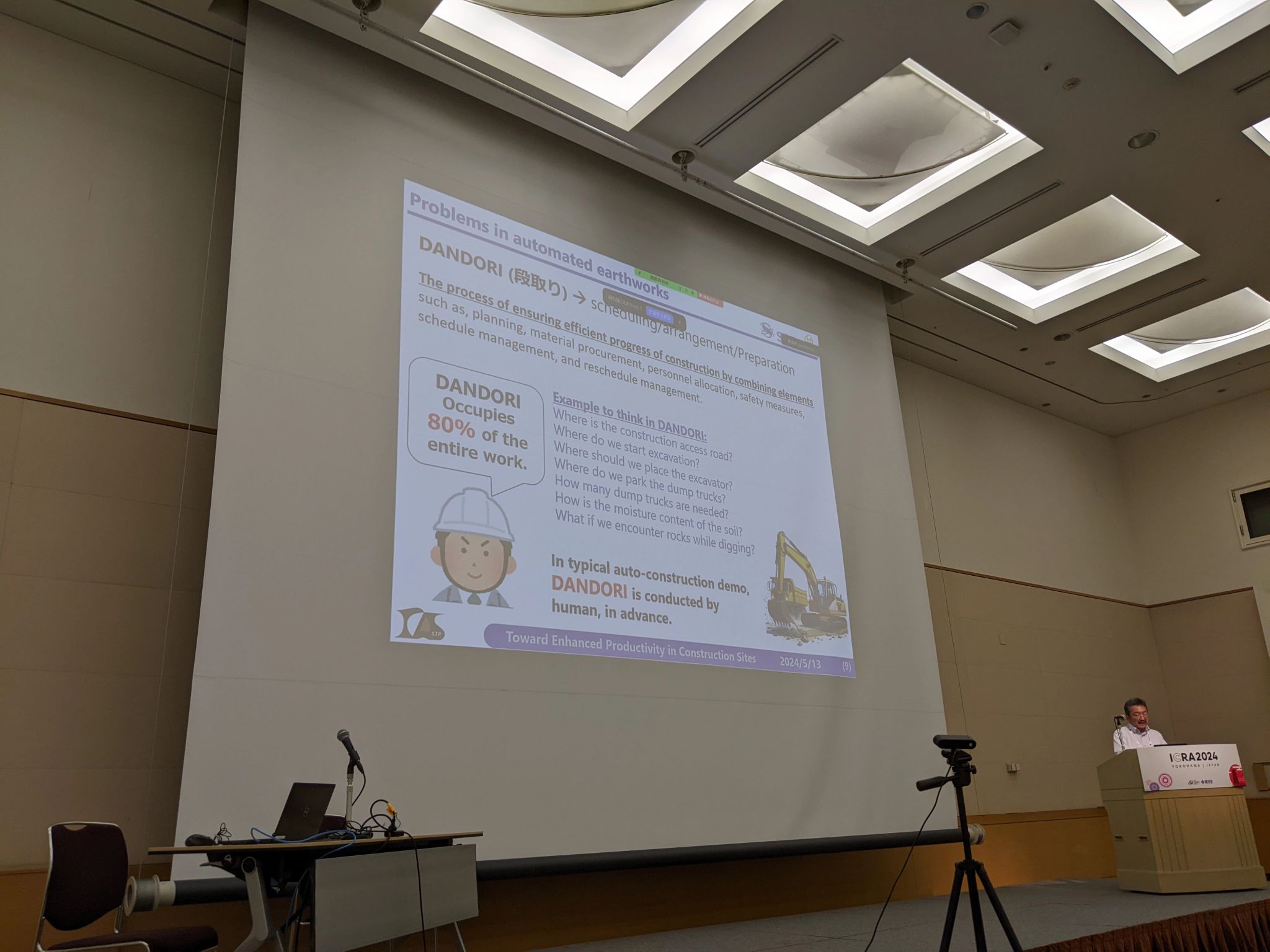
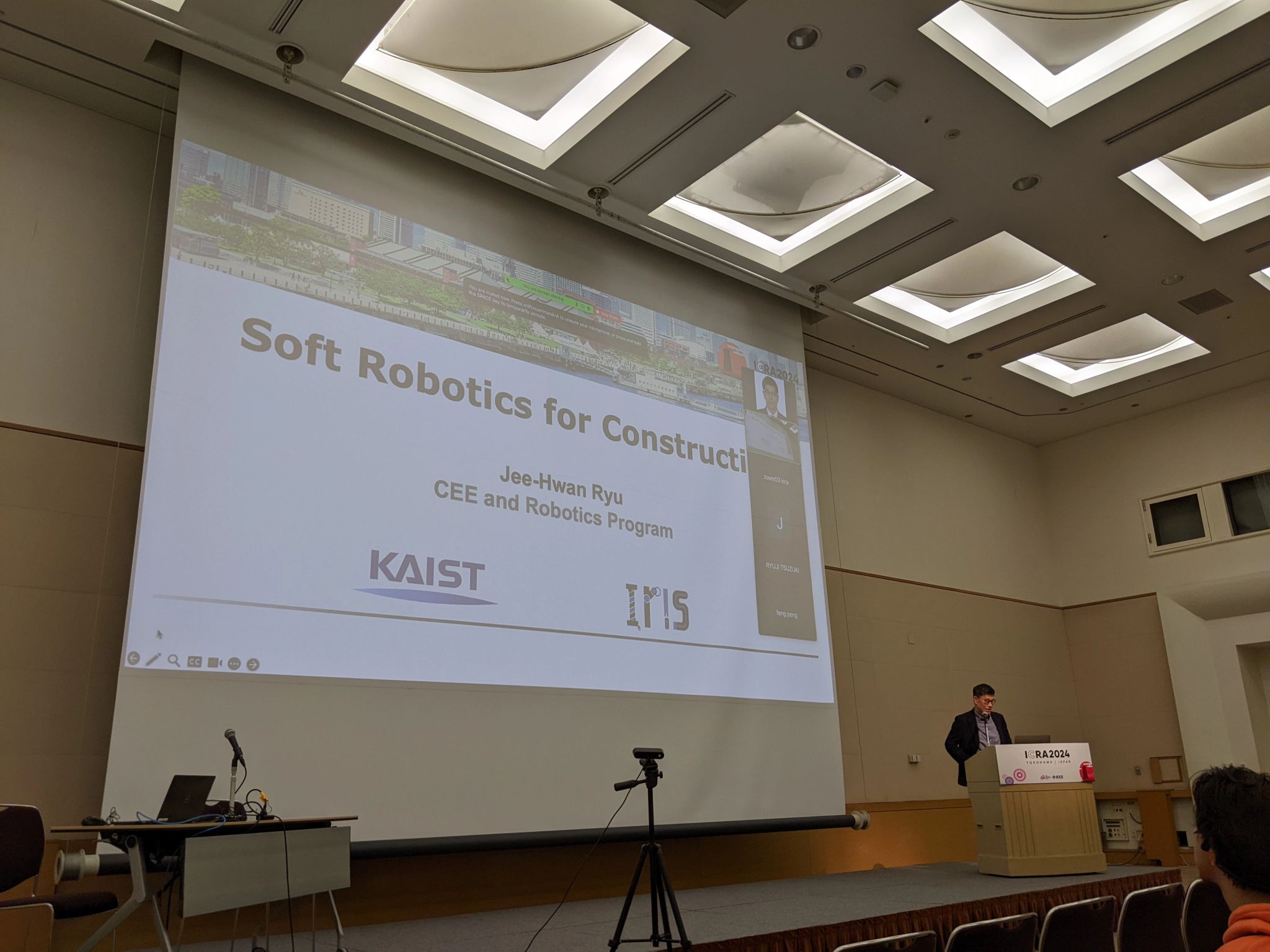
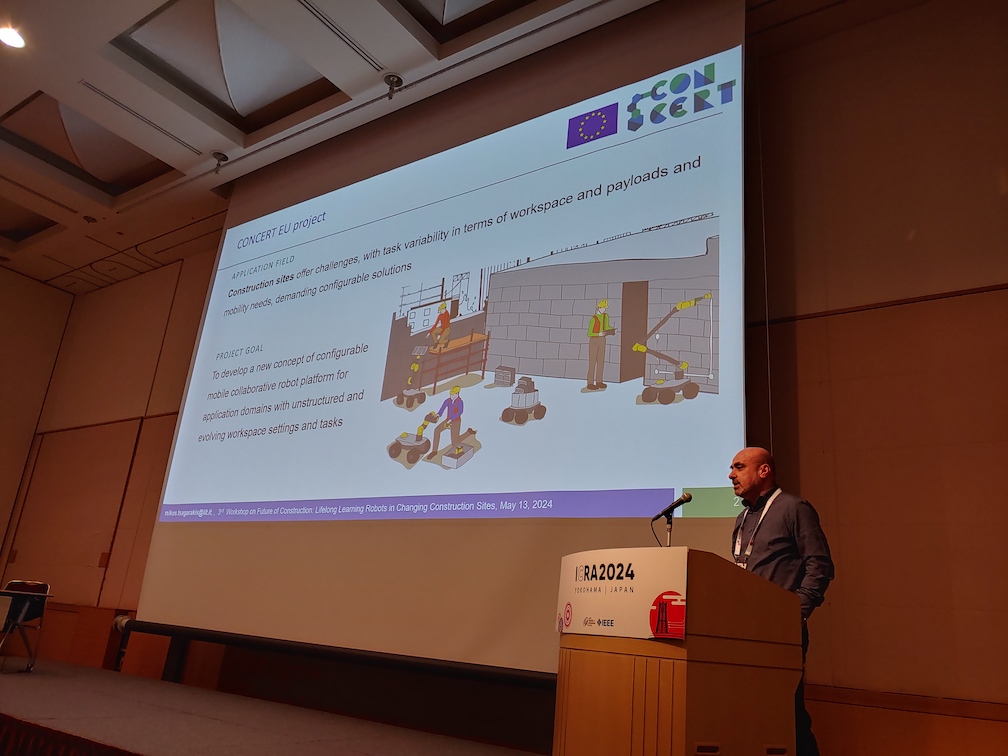
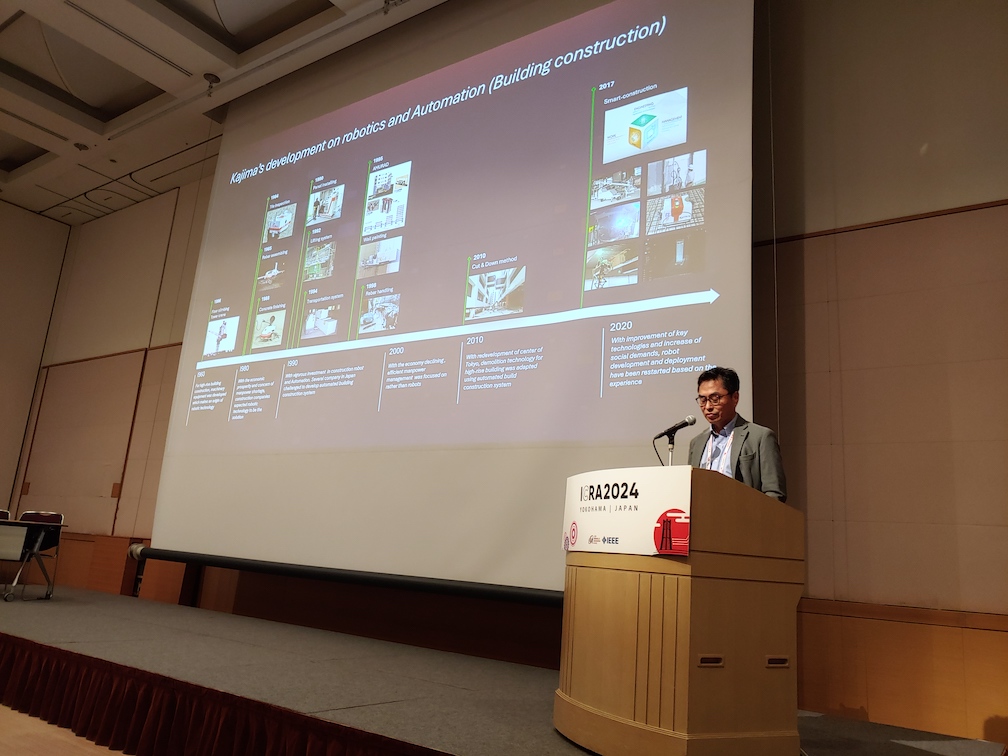
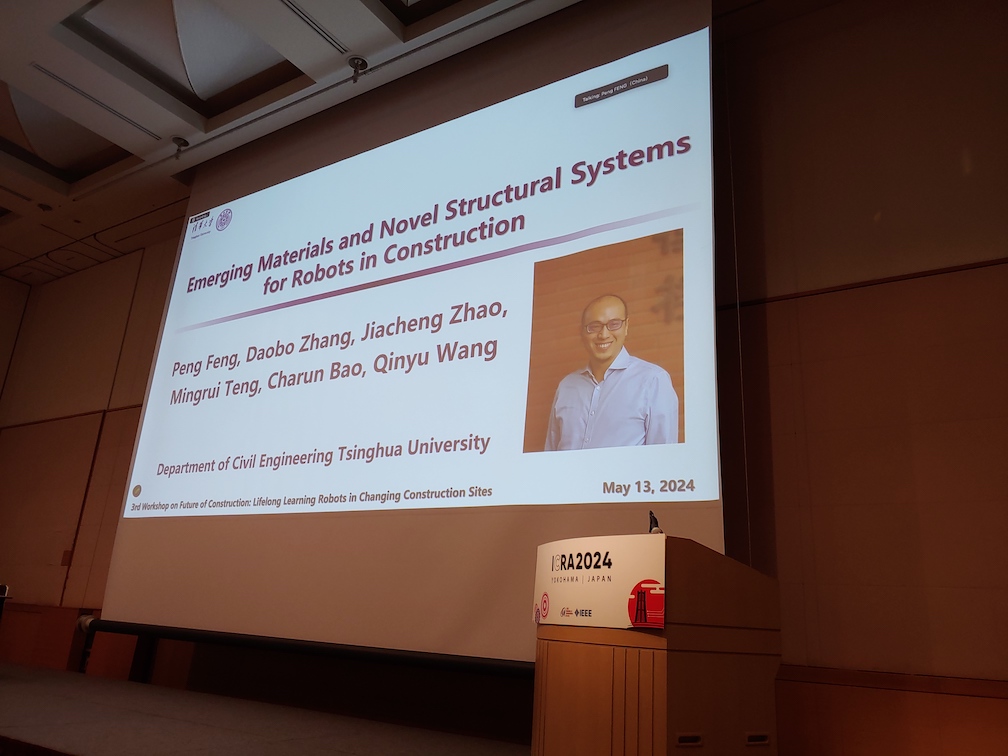
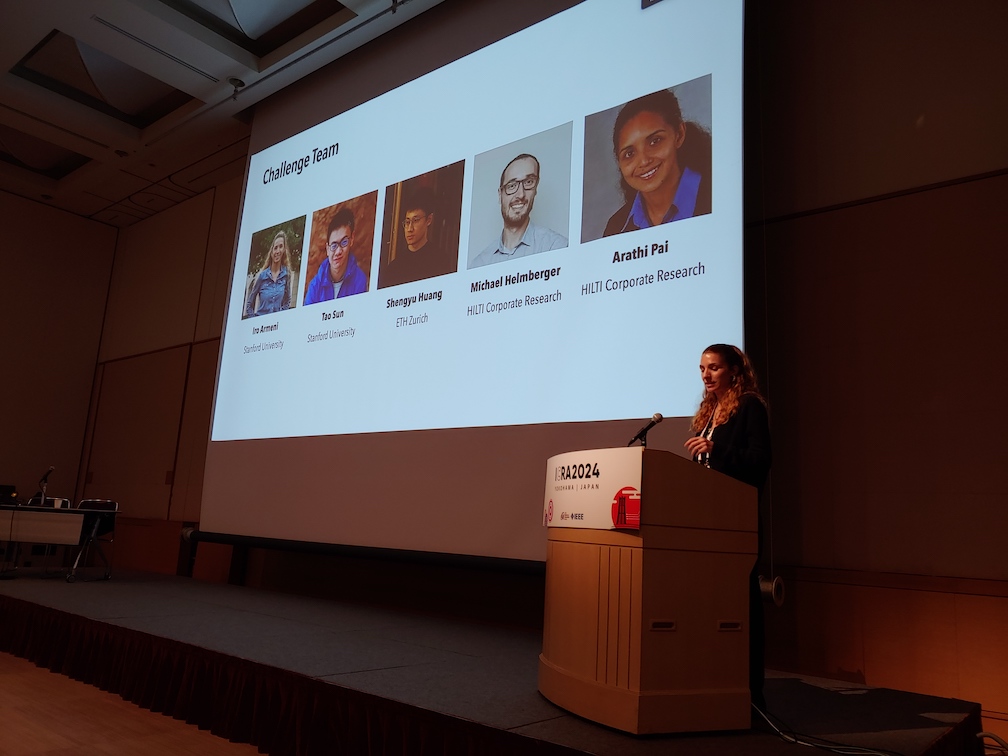
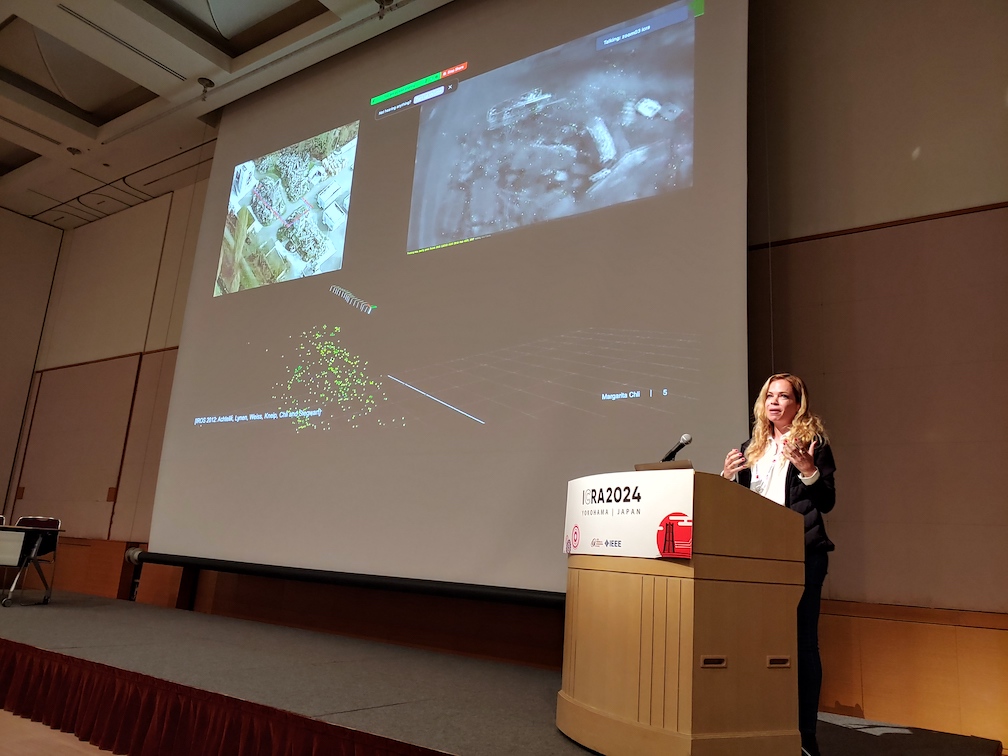
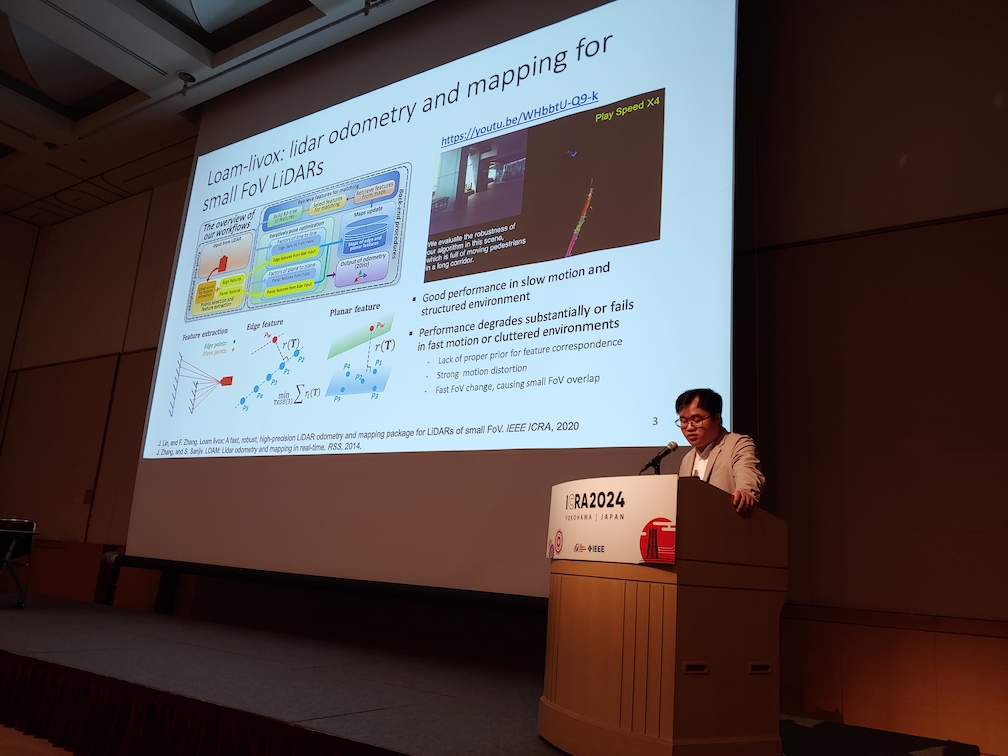
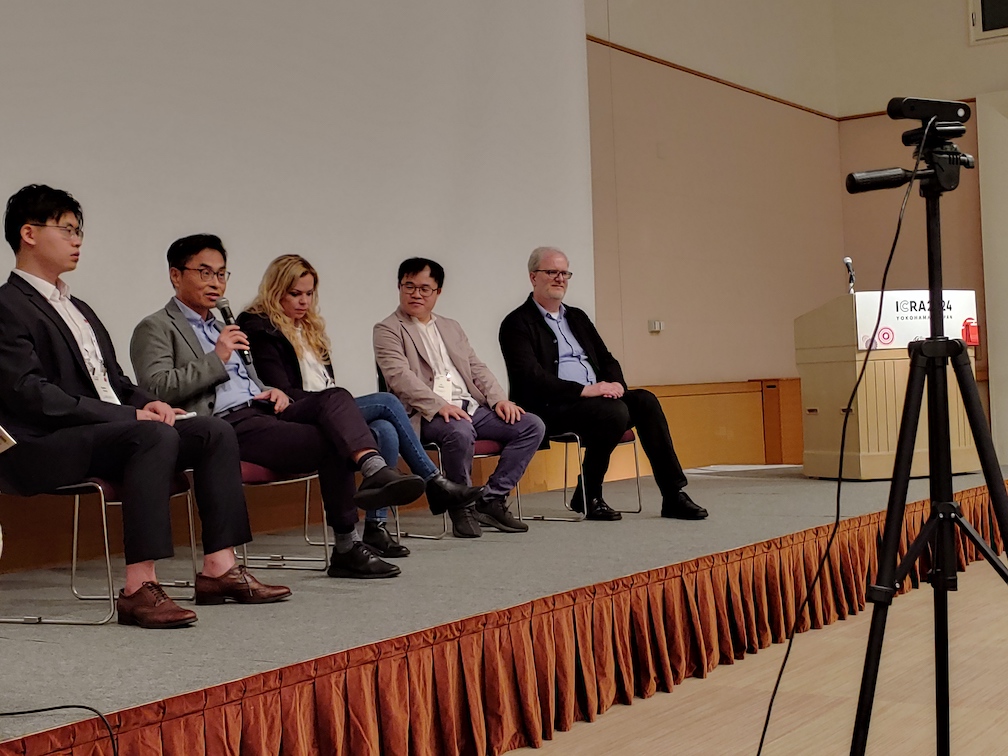
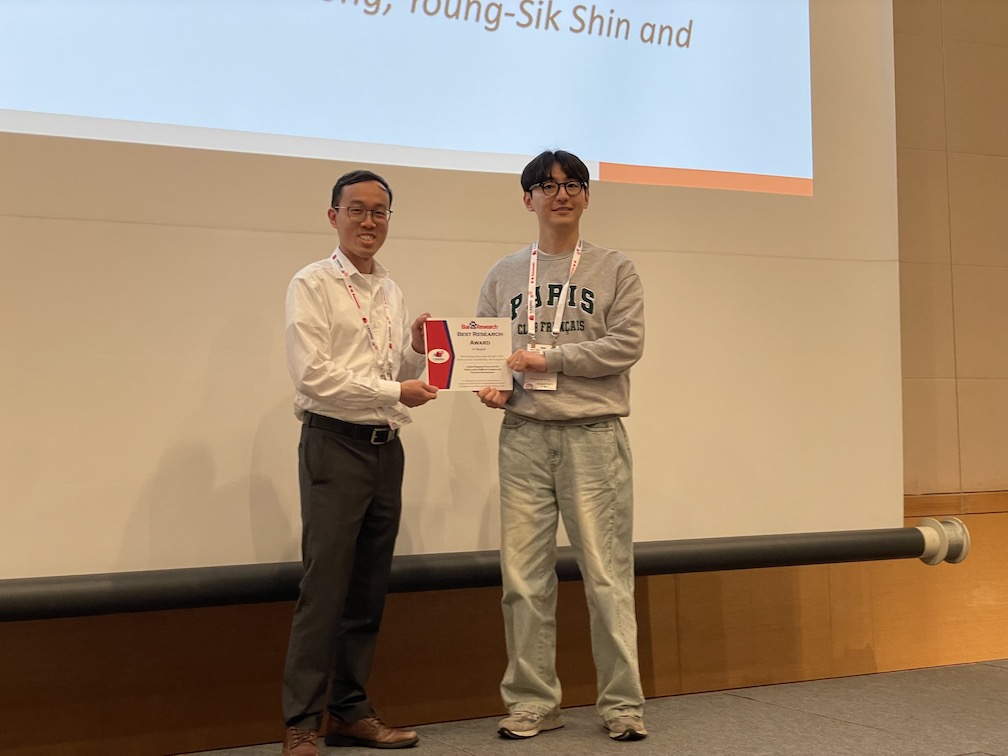
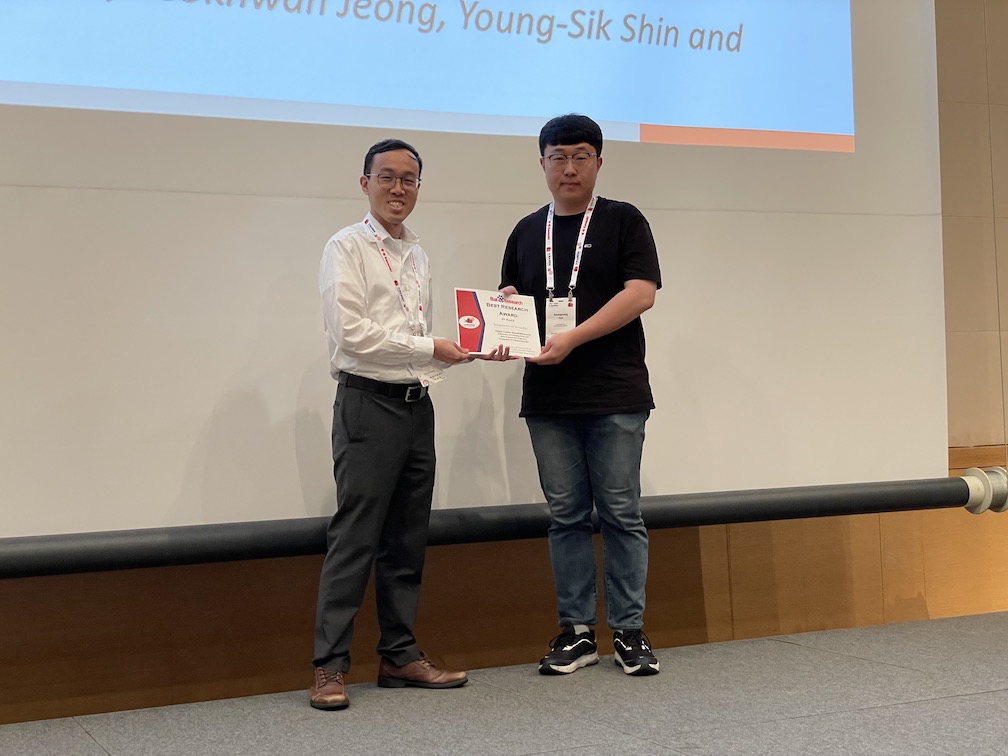
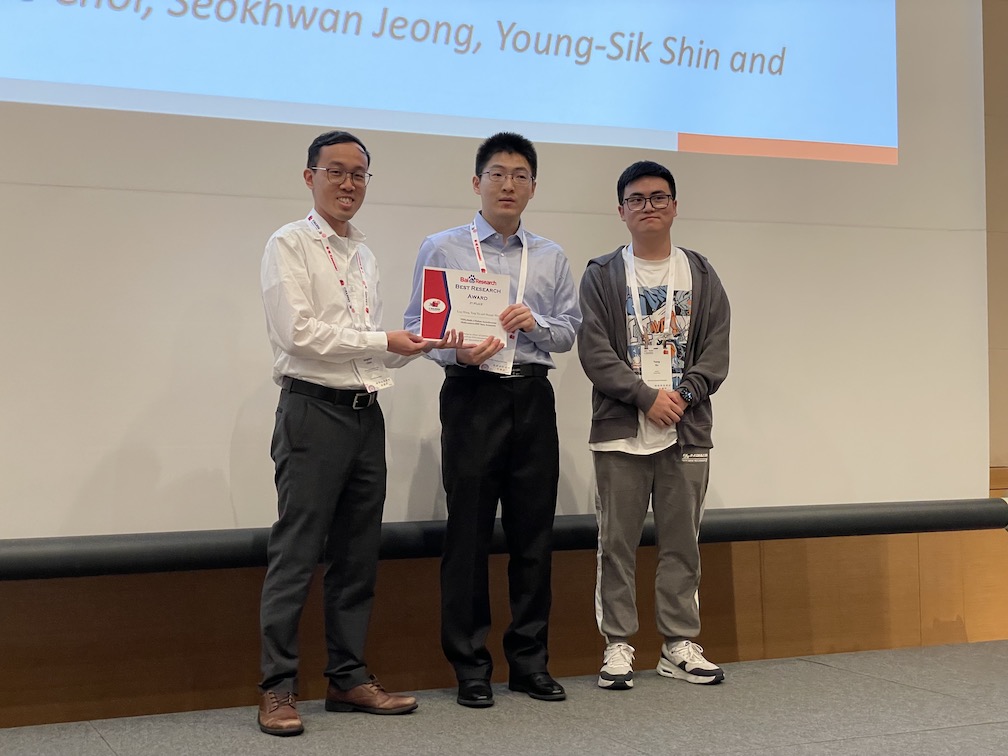
The $10 trillion global construction industry has traditionally been a labor-intensive industry, yet it stands to benefit from autonomous robots that promise to deliver construction work that is more accurate and efficient compared to manual or conventional methods. However, the integration of automation and robotic technology into the construction workplace is faced with significant barriers including high cost of entry, safety concerns, inadequate training and knowledge about robotics, and poor performance of robots in dynamic, cluttered and unpredictable environments such as construction sites.
To tackle these challenging issues, this workshop aims to facilitate discussion on technology that will enable advanced robotics for future construction workplaces with an emphasis on robust perception and navigation methods, learning-based task and motion planning, and safety-focused robot-worker interactions. In line with the ICRA's theme, this workshop will provide a venue for academics and industry practitioners to create a vision for robotics in construction work and ensure equitable participation in planning for the future of construction workplaces. The full-day workshop will feature presentations by distinguished speakers from both industry and academia as well as interactive activities in the form of a SLAM challenge, poster sessions, debate, and panel discussions
The workshop will be held as a hybrid event, and the session will be live-streamed to an online audience. All participants (in-person or online) must register for the workshop and tutorial through the ICRA registration page.
(Virtual attendees) Join us using the following Zoom link:
https://us06web.zoom.us/j/86730092797?pwd=7yMNVNMjQ6to9d9V6ioZgLbQnaAsVF.1This workshop will solicit contributions in two tracks: (i) the Paper Track and (ii) the Poster-only Track.
Paper Track: This track consists of contributed papers that constitute novel, original research in construction robotics or closely related fields. Contributed papers cannot take the form of an existing paper that is published or under review. Contributed papers should be in the form of extended abstracts (about 3-4 pages in ICRA paper format, including references). Authors are encouraged to also submit an optional 2-3 minute video presentation of their paper if their work involves visualization, robot operation etc. The accepted contributed papers will be made publicly available on the workshop website. In addition, authors of accepted papers will be invited to publish their papers with The International Association for Automation and Robotics in Construction (IAARC), though this is optional for authors who wish to publish at other venues. In this case, these papers will receive DOI numbers and be made permanently available through the IAARC website. IAARC paper publication fees will be sponsored by Baidu Research.
Poster-only Track: This track consists of posters that can be either based on a prior publication or novel work. Authors with an original paper may submit it to both tracks (paper and poster). Accepted posters will be presented during the poster session on the day of the workshop in the hallway outside the conference room. Authors are expected to print out and bring their own posters to the workshop, though poster boards will be provided. Poster boards are A0 format (841 mm x 1189 mm) in portrait orientation. There is no specific template for the posters. You should choose the format that best represents your research work. Please use the ICRA 2024 logos that can be found here.
Submissions can be made through this Google Form, where the paper or poster can be uploaded in PDF format. Deadlines given below are in Anywhere on Earth Time. Questions regarding the paper submission should be directed to chenjingdao@cse.msstate.edu.
Camera-ready paper submissions can be made through this Google Form.
If you require an early decision notification due to having to apply for a visa, please contact chenjingdao@cse.msstate.edu
The topics of interest include, but are not limited to, the following:
Submitted papers (Paper Track only) will be considered for the best research awards based on technical merit, originality, and potential impact on the field. The best research awards come with $1000 in total cash prizes generously sponsored by Baidu Research (First place: $500, Second place $300, Third place $200). Winners will be announced along with the NSS Challenge winners during the day of the workshop. Best research award winners will also be invited to give a 10-minute presentation on their paper during the workshop.
#1: VINS-Multi: A Robust Asynchronous Multi-camera-IMU State Estimator
Luqi Wang, Yang Xu and Shaojie Shen
#2: Tightly Coupled Multi-RGBD-Inertial Odometry: Leveraging Front and Rear Camera for Trajectory Estimation in Construction Site
Seungsang Yun and Ayoung Kim
#3: Unified Mapping Framework for Multi-modal LiDARs in Complex and Dynamic Environments
Gilhwan Kang, Hogyun Kim, Byunghee Choi, Seokhwan Jeong, Young-Sik Shin and Younggun Cho
Nothing Stands Still 2024 Challenge: HILTI and the Gradient Spaces group from Stanford University are announcing the new Nothing Stands Still 2024 Challenge to tackle the critical task of seamlessly integrating progress scans from various stages of construction. Specifically, the challenge targets the task of multiway spatiotemporal 3D point cloud registration of data collected over time at construction sites. The goal of the challenge is to achieve a global spatiotemporal map of 3D point clouds collected at any time and location at the same construction scenes, as the latter evolve. The challenge website may be accessed here.
#1: MIT-SPARK
Hyungtae Lim, Jingnan Shi, Yun Chang, Lukas Schmid, and Prof. Luca Carlone
#2: HKU-TransGP
Yinqiang Zhang, Liang Lu, Jia Pan
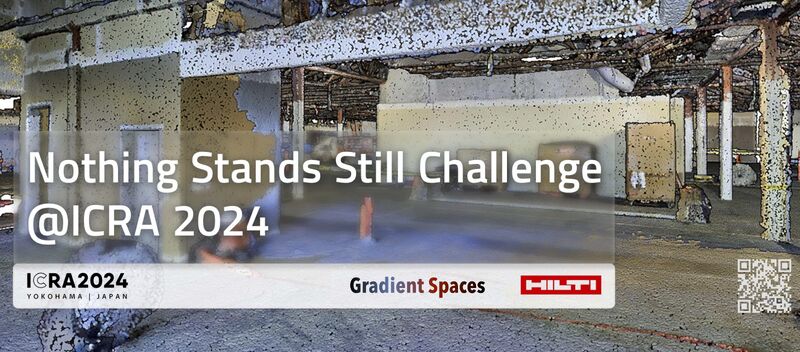

Dr. Keiji Nagatani is a project professor at the University of Tokyo researching the autonomy of construction machinery and field robots. Since 2020, he managed a project on collaborative AI robots for adaptation of diverse environments and innovation of infrastructure construction within a large Japanese R&D program known as Moonshot. Furthermore, since 2023, he served as a Project Leader for development of innovative construction production processes under the SIP (Strategic Innovation Promotion Program) for construction of a smart infrastructure management system.

Dr. Jee-Hwan Ryu is currently a Professor with the Department of Civil and Environmental Engineering at Korea Advanced Institute of Science and Technology (KAIST). Dr. Ryu's research interests include construction robots, haptics/telerobotics, soft continuum growing robot, soft and flexible actuator and its application to soft exo-suit, and autonomous vehicles. Dr. Ryu is the Chair of the IEEE Robotics and Automation Society MAB Distinguished Lecturer Program, Co-chair of the IEEE Technical Committee on Haptics, and Senior Editor of IEEE Robotics and Automation Letters.
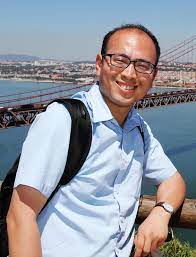
Dr. Peng Feng leads the Research Group for Emerging Structural Materials and Systems for Construction at the Department of Civil Engineering in Tsinghua University. His lab performs research in structural technologies with emerging materials and systems for civil engineering, including high performance FRP composite structure, advanced concrete structure, and advanced construction technology. His work in advanced construction technology includes 3D concrete printing, 3D scanning, AI-driven 3D printing, advanced CNC cutting, and bionic self-forming.

Dr. Soungho Chae is the Head of Construction productivity team at Kajima Technical Research institute in Singapore, a global R&D hub of one of the oldest and largest construction companies in Japan. His research area is in building construction management with ICT (Information Communication Technology) and RT (Robotics Technology), especially in evaluating the effectiveness of the advanced technologies such as image processing, sensing, measuring and visualization and applying it to construction sites.
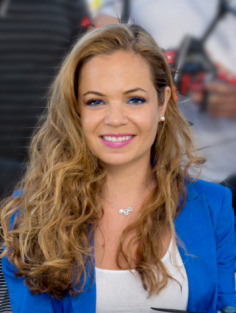
Dr. Margarita Chli is a Professor in Robotic Vision and director of the Vision for Robotics Lab (V4RL), at the University of Cyprus and ETH Zurich. Margarita Chli’s interests lie in computer vision for robotics and contributed to the first vision-based, autonomous flight of a small helicopter. In 2016 she was featured in Robohub’s list of 25 women in robotics and in 2017 she was a speaker at the World Economic Forum in Davos, Switzerland. The V4RL team has achieved some world-firsts in robotic perception, such as the first vision-based autonomous flight of a small helicopter, and the demonstration of collaborative robotic perception for a small swarm of drones.
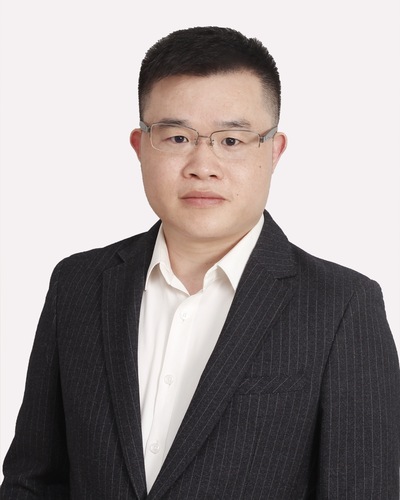
Dr. Fu Zhang received his B.E. degree in Automation from the University of Science and Technology of China (USTC), Hefei, Anhui, China, in 2011, and the Ph.D. degree in Controls from the University of California, Berkeley, CA, USA, in 2015. His current research interests are on robotics and controls, with focus on UAV design, navigation, control, and lidar-based simultaneous localization and mapping. Prof. Zhang directs the Mechatronics and Robotic Systems (MaRS) Laboratory, part of the Department of Mechanical Engineering at the University of Hong Kong (HKU). His lab focuses on general mechatronic systems and robotics, with emphasis on their practical use in real human life and industry.

Dr. Nikos Tsagarakis is Tenured Senior Scientist and Principal Investigator of the Humanoid and Human Centred Mechatronics (HHCM) Research Line, a leading research laboratory at IIT with strong expertise in robot design, modelling and control, and in the development of new mechatronics components (actuation and sensing). Dr. Tsagarakis is the project coordinator for the EU project CONCERT, which focuses on the development of configurable robot platforms, which can be explored in construction domains with unstructured, variable and evolving workspace settings and tasks.
This workshop is made possible thanks to the generous sponsorship of the following organizations:
We would like to acknowledge the support of the following RAS Technical Committees:
Links to previous iterations of this workshop at past conferences: